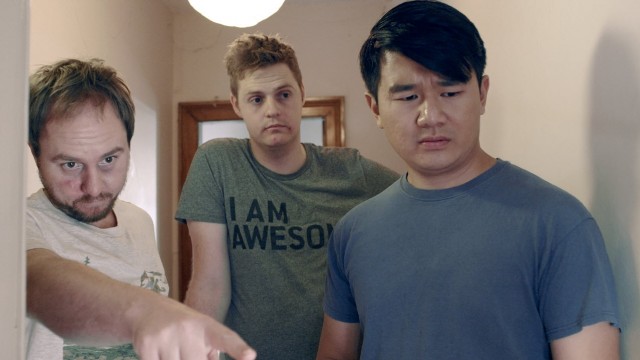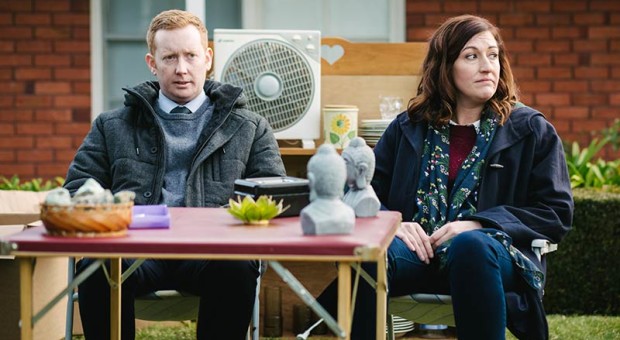Australian Tumbleweeds
We’re on the Road to Nowhere
Australian comedy rarely rewards original ideas. But Squinters goes one better than the usual rehashes and retreads: not only is it basically a remake of production company Jungle’s recent Stan series No Activity, but within the same format you’ll spot a number of popular comedy dynamics being dusted off and taken for a spin. Is it a new rule that one-fifth of all new ABC comedy must resemble Broad City? Don’t let them see The Good Place, the ABC’s output is hellish enough as it is.
So this is a sitcom about five batches of people who in the morning drive into work, and in the evening drive home again. It seems like the kind of idea a network would adopt largely because it’s cheap – even cheaper if, as with No Activity, they just give the cast rough outlines to improvise their dialogue from – and yet for some reason a chunk of this Sydney-set show was filmed in Los Angeles. Presumably Jacki Weaver, Sam Simmons and Tim Minchin weren’t able to return to Australia to film their parts, and they’re the kind of big names a sitcom about people sitting in cars needs to pull in the audience.
… or, you know, you could come up with a sitcom based on an interesting idea, but the people who greenlight Australian comedy seem actively allergic to that kind of thing. It’s this grim fixation on the idea that the only possible thing audiences tune in for is personalities that gives us year after year of largely forgettable comedy from the National Broadcaster; almost every memorable sitcom ever made turned its cast into much-loved personalities, not the other way around. Putting big names into a shit show creates a shit show: putting unknowns into a great show makes them stars.
But we have to make do with what we have, which in the case of Squinters is solidly professional and occasionally amusing. Five cars spread across around 25 minutes of sitcom means we only get under five minutes with each car (once the constant shots of busy streets and highways plus co-creator Adam Zwar’s voice-over traffic reports are taken into account) – it’s basically a sketch show where every sketch is just two people talking to each other. Remember how loathed the restaurant sketches were on Fast Forward and Full Frontal were because they were just two people talking? No? That’s how this show got made.
Car number one on its way to Kosciuszko headquarters is carrying middle-aged Lukas (Sam Simmons) and his mum Audrey (Jackie Weaver); he’s hoping for a promotion, she’s taking her dog to a breeding session, and if you find awkward sex chat hilarious this is the segment for you as Audrey suggests her corpse could be turned into a diamond that Lukas could use as a tongue stud and Lukas – who is gay – points out that they’re made for “pleasure”. This is easily the broadest segment of the show, but the trip back (where things have taken a turn for the worst for Lukas) salvages the character to some extent… though really, both there and back are largely excuses for Simmons to do his patented strangulated “I’m not yelling” voice.
Car two features Paul (Tim Minchin) who has clearly set up a fake carpool to get his unknowing crush Romi (Andrea Demetriades) into his not-at-all-suspicious white van. The hilarious comedy dynamic here is that he’s a quiet, sensitive type, while she’s more confident and starts bringing up masturbation at random on the first drive. This one works reasonably well because it’s about the characters interacting: “will they or won’t they” is rightly mocked as a character dynamic in comedy but for four minutes a week it’s tolerable.
Macca (Juston Rosniak) and Ned (Steen Raskopoulos) have known each other since high school… where Macca bullied everyone around him. This feels like Zwar returning to the dynamic of Wilfred: a smart, subdued nerdy type has to deal with an aggressively rough-as-guts Aussie-as type. Plus more sex jokes, this time about Macca having to wank at work for stress relieve (plus he can’t wank at home because his wife’s always there). You know when you think back over all the classic comedy sketches of yesteryear and realise that almost all of them involved characters who were either physically doing things or meeting each other for the first time and you’re working on a show where neither of those are options? Jokes about wanking.
At least the car with Simoni (Susie Youssef) and her free-spirited bestie Talia (Rose Matafeo) doesn’t feature any wanking jokes, because the dynamic between the two, uh, owes a large debt to Broad City. But Broad City is (well, was) a pretty good show, so this plot – Simoni is taking Talia to a job interview so she can contribute financially to the small business they’re planning together – is one of the better ones. It doesn’t hurt that this is also the one with the most straightforward comedy concept, though it seems that after this week the new status quo is going to leave them with nowhere to go* but a run of episodes based on the exact same joke.
As for car five, in which mum Bridget (Mandy McElhinney) is driving teenage daughter Mia (Jenna Owen) to school, this one has a few too many ideas going on: Bridget is trying to live through her daughter (“don’t make the same mistakes I did”, etc) while also trying to manage her dating life, while Mia is horrified by the very idea of her mother getting laid but also has a wacky boyfriend who seems to have wandered in from a completely different show.
The best installments are generally the ones where the drama is based entirely inside the car: the possible relationship between Paul and Romi, how work upsets the relationship between Simoni and Talia. That’s because this is a show set entirely inside cars: the stuff going on outside is only relevant when it impacts on the situation inside the car. Bridget’s romantic life is only interesting because it impacts on her relationship with her daughter, because her relationship with her daughter is what her segment is about. Jokes about outside stuff might be funny, but if they don’t connect to the core point of the sketch then they’re going to stop being funny pretty quickly.
Put another way, Romi talking about wanking is both funny and relevant: if Paul wants to be in a relationship with her, the fact that they have different attitudes to sex is kinda important. Macca talking about wanking is just some boofhead talking shit about jerking off – it’s funny at first but it doesn’t take long to start thinking “who cares?”
And with Squinters, you might find yourself thinking that a little too often.
*so many opportunities came up to say Squinters is “going in circles”. So many.
Last chance to see (almost)
While we were noodling around on SBS On Demand the other day, we came across some of the pilot shows from Comedy Runway, a 2014 SBS comedy pilot scheme that we’d completely forgotten about. And because some of the shows are about to disappear from SBS On Demand quite soon, and we’ve never reviewed them, and a couple of them feature comedians who are currently doing quite well for themselves, we figured we should take a look…
Fully Furnished
When Dayne and Todd (Tonightly’s Tom Ballard and The Little Dum Dum Club’s Tommy Dassallo) lose their housemate because they’re so awful to live with, they advertise for a new one. Answering their ad is Malaysian business student Ronnie (Ronny Chieng from The Daily Show with Trevor Noah and International Student) who, short on funds, turns his new home into a laundromat. Finding the house suddenly full of people and laundry, Todd fights back by opening a rival laundromat in his room…and things just spiral from there.
If this seems slightly like Ronny Chieng International Student, that’s because it is; this is the comedy of things getting more and more ridiculous, with a Malaysian student right in the centre of it all. That said, it’s a very different show with completely different writers, and nowhere near as clever.
Part of the problem is that most of the characters are pretty dislikeable, particularly Todd, who makes racist remarks about Ronnie and describes the laundromat customers as “low breeds”. Fair enough, he’s a parody of an awful guy in his 20s, except, for the parody to work you’d have to be able to laugh at Todd, and the script isn’t clever or funny enough to make you do that. So, Todd just comes across as the massive racist arsehole.
Having said that, Fully Furnished is one of the better shows from to come out of this scheme – it’s inventive, there are lots of potential plots, and parts of it are funny.
Apocalypse Events
Carlos and his gang might look like hitmen or kidnappers, but they’re actually corporate team-building day facilitators. Trust exercises? Nah, boring. The way to sort the wheat from the chaff in the business world is to subject an executive team to a terrorist siege, or to hood them, drive them out into the bush and make them fend for themselves. There are some funny moments in this, like when Carlos and team burst into a client’s office wearing balaclavas and toting guns and the bored receptionist asks them to sign in…which they do. Problem is, there’s barely enough in this idea to sustain a six-minute sketch, let alone a series. Still, nice attempt.
Dog Squadron
This is more cute than funny. Imagine if the famous air battles of World War 2 were fought by dogs, with the RAF squaring off against, wait for it, the Luftwoofe, whose squadron leader is, wait for it, General Woofenstein. And that’s the extent of the comedy in this.
Heaps Good Hostel
When English backpacker Byron checks in at an Adelaide backpackers’, it isn’t immediately obvious that he’s a vampire. And when permanent resident Finegan works out that he is, hostel staff Jaz and Sam don’t believe it and don’t care. There’s not a great deal of hilarity here, apart from a reworking of this old gag: “I banged that French chick last night.” “Where?” “In the vagina.”
Nulton
This is a sort of mash-up of The League of Gentleman and the Beaconsfield mine disaster, except it’s a bunch of weird locals trying to help a trapped Dutch backpacker. You want rural grotesques? This has lots of them. Although, sadly, none of them are particularly funny.
Looking Back – Dack Attack!
Fictional nostalgia programme Looking Back looks back at fictional 90s TV favourite Dack Attack! in which rugby hall of famer Darren Tackle (Greg Larsen) went up to people on the streets and dacked them. This is a fairly solid parody of 90s entertainment shows and features a lot of high quality dacking. And who doesn’t find dacking hilarious? Problem is the whole thing is slightly too drawn-out to be really funny, and while this concept could have made a decent series, let’s face it, Greg Larsen’s gone on to bigger and better things and that’s a good thing.
There’s one more Comedy Runway show currently available on SBS On Demand, and that’s Suspect Moustache, but as there are five episodes of that we’re going to review that in a separate post.
Thursday’s the Day for Sammy J
Press release time!
GRAB A BITE OF SAMMY J EVERY THURSDAY NIGHT!
Monday, February 5, 2018 — Welcome aboard Sammy J, a brand-new weekly bite-sized satirical sketch series to broadcast on ABC at 6.55pm starting Thursday 8 February. Sammy J will also be available on ABC iview, ABC iview Facebook and ABC COMEDY YouTube.
Multi award-nominated comedian Sammy J is making his boldest pitch yet to the electorate: a three-minute frolic through the issues of the week. From craft activities with Malcolm and Bill, Question Time debriefs with the Government Coach, to singalongs in the Parliamentary Bar, Mr J will continue to flog our leaders with wet lettuce until they refer him to the High Court.
Sammy J’s unique comedic talents, satire, and his insatiable appetite for politics will blend with the successful characters and ‘small worlds’ of his previous two series, Sammy J’s Playground Politics and Sammy J’s Democratic Party, to create a new platform from which he can harass and heckle the politicians of the day.
Sammy J said; “In the words of Julia Gillard – there will be some days I delight you, there may be some days I disappoint you, but on every day, I will be working my absolute hardest for you. Thank you for inviting me into your living rooms, and I promise to clean up after myself.”
Sammy J is an award-winning comedian, writer and musician. He won the Best Newcomer award at the Melbourne International Comedy Festival and went on to performed in Edinburgh, Montreal, and every major Australian comedy festival. His album Skinny Man, Modern World received an ARIA nomination for Best Comedy Release. His current solo show, Hero Complex, won Best Comedy at the Melbourne Fringe Festival and was nominated for a Helpmann Award in 2017.
We’re a little surprised the ABC is keeping the Clarke & Dawe timeslot open without Clarke & Dawe – 6.55pm on a Thursday never felt like a much sought-after spot for original content – but Sammy J is probably the best current choice for it. Even if this does sound like they’ll just be parceling out segments from his somewhat hit and miss Sammy J’s Democratic Party in an easy-to-upload format.
Fingers crossed the focus on one sketch a week will sharpen things up, as we enjoyed a lot of Sammy J’s Playground Politics. Just less interviews with cardboard cutouts of Robert Menzies, please.
Still Mad as Hell always
We’re currently living through an Australian topical comedy glut. There’s not just one topical comedy on TV, there are two: Tonightly with Tom Ballard and the newly-returned Mad As Hell. That’s two different shows giving their two different takes on Australia/Invasion Day, dual citizens in parliament, Malcolm Turnbull, and various other current affairs – actual consumer choice!
So, obvious question, who does it best? To which there’s an obvious answer…
…or is there?
Clearly Mad As Hell is doing the sketch comedy side of things way better. The entire show is basically a half-hour news desk sketch, a rolling news desk sketch if you will. This means there aren’t the great, juddering tonal shifts that you get on Tonightly… when it cuts from Tom Ballard’s stand-up to a pre-recorded sketch featuring one of the cast doing comedy in a totally different style.
When Mad As Hell cuts from the Shaun Micallef host character reading a story to an interview, then on to the next story, and so on, it feels like a more cohesive show. Not just tonally, but in terms of overall quality. Mad As Hell feels like a show where material is written in a house style, and to a certain standard. It’s the kind of show where material gets rejected, or re-written until it works – an attitude which even makes it into the show. When Micallef points out that that photograph of Barnaby Joyce isn’t quite right, it’s the cue for the team to cycle through about 10 different shots, the joke getting funnier the longer it goes on.
Meanwhile, on Tonightly…, parts of it feel like a first draft. Like there’s an attitude that “It’ll do”. To be fair, the Tonightly… team have more material to write each week. On the other hand, that’s not a good enough excuse.
Here’s a tip, straight out of last night’s Mad As Hell: if you’ve pre-recorded something that’s a bit average, add something funny in the background. Some dead bodies floating down the river, for example. Sketch saved!
Tonightly…, though, intends to do things very differently to Mad As Hell. At least half the show is stand-up which sometimes has a serious point to make, for example – a perfectly reasonable approach to take when you’re making topical comedy. And Tonightly…, it has to be said, does a pretty good job of expressing the real rage and frustration that many people, particularly young people, feel towards our politicians and the political process – who else is doing that on TV? Also: no knowledge of cult cinema is required to get the joke – you follow the news, you get the reference.
So, to the various people wondering why we’re giving “ongoing soft support” to Tonightly… it’s that we appreciate the difference between it and other shows, and think it’s got something to offer. Even if it hasn’t reached Mad As Hell‘s level of brilliance yet.
Problematic Content
Look, we really appreciate Ten doing their level best to bring light entertainment (without sport) back to the commercial networks. And who can blame them: with Have You Been Paying Attention? now a ratings hit and a cross-promotional gold mine, no wonder they’re going back to the well over and over again. Personally we would have bricked over that well once we fished Cram! out of it, but here we are again with Hughesy, We Have a Problem, and… yeah.
We’re old enough to remember exactly why Dave Hughes is famous, which already puts him well ahead of most of the other television “personalities” dragged into the spotlight thanks to the massive gravity of the black hole that is Rove McManus. Specifically, where Carrie Bickmore was an everywoman and Peter Helliar was an everywoman but a man, Dave Hughes was angry. He was angry on Rove, he was angry on The Glasshouse, he was angry when he was on the Triple R Breakfasters in Melbourne, he was angry when he and the rest of the Breakfasters were bought across to Nova and he was angry when… actually, somewhere along the way he discovered mindfulness, gave up the booze, started doing a lot of material about his wacky family and became the richest man in Australian comedy.
Which is kind of a problem here, because this show – which, as others have pointed out, is basically just a do-over of the old Beauty and the Beast format of a panel solving various problems by throwing jokes at them – really needs a host with a bit of an edge. Somebody’s got to be the one who takes things too far on this kind of show, and it’s got to be a regular so we know them well enough to know they don’t really mean it. But 2018 Hughesy isn’t that guy any more: he’s too busy making jokes about how his dog likes to bite strangers.
That’s one big problem; having this show run for a full hour is another. In comedy you definitely can have too much of a good thing, especially when your format is just “four people answer questions”, and bringing out a couple of audience members and a celebrity guest doesn’t really qualify as mixing it up. Especially when around 40% of the questions seem to involve parenthood. With it being scheduled after I’m a Celebrity So We Can Run Well Over Time If We Feel Like It, there’s no good reason this has to be a firm hour long; a tight thirty minutes plus ads would be ample.
Otherwise though, and much as it pains us to admit it… this didn’t totally stink. Part of the reason why the Beauty and the Beast format has endured is because it allows the guests to ramble on a little while having an aim – answering the question – in mind, and so this (largely) landed in the sweet spot where the panel (which importantly was a good mix of types who generally played well with each other) got to chat without burbling on for ages. Yes, Julia Morris was one of the panelists and so we got to hear more about herself and her career than we would have liked, but even then a reasonable amount of her self-promotion was actually on topic, which as far as she’s concerned is extremely refreshing.
It wasn’t rapid-fire funny like a good episode of HYBPA? – in fact, decent jokes were fairly thin on the ground – but most of the conversations eventually arrived somewhere funny and the interjections (which seemed surprisingly natural for Australian television circa 2018 – no ABC-style constant cutaways to the audience here) almost always served to raise the humour level. Basically, the basics were strong: this is a show that needs a few tweaks rather than being burnt to the ground.
Strange as it is to say because this actually showcases him pretty well, Hughesy is probably the weak link here. The host needs to be a counterpoint to the panel, not someone competing with them for laughs, and while Hughesy himself did well out of things the show itself would have been better if the host had been more distinct from the panelists.
Basically, his current “top family bloke” persona is just too nice to be the host of a show built around people being bitchy about strangers’ personal problems. He seems like the kind of guy, dead doll eyes aside, who really wants to help people, whereas all we want is to get the maximum possible laughs out of each problem.
And those laughs aren’t going to come from useful advice.
Australian Tumbleweed Awards 2017 – The Results!
Not long after voting opened for these awards, we were contacted by a cast member from an Australian comedy series we’d recently reviewed. While our review of their show was fairly positive – at least by our standards, but more on that later – this cast member was angry that we had characterised a portion of the show along the lines of “largely inoffensive”. Didn’t we realise that good people had worked hard on this show? Didn’t we understand that saying negative things about their work was going to be hurtful? And to them we say this: you might want to stop reading now.
We find ourselves going over this a lot but hey, it’s not like we’re getting paid by the word so here we go again: this – and by “this” we mean both the Tumbleweed Awards and this blog in general – is not aimed at comedy professionals. Are you working hard trying to make a living making people laugh? Then this is not for you. We understand that professional comedians are starved for decent feedback in this country, what with a critical industry made up largely of blow-ins and glad-handers, but that doesn’t mean our job is to tell you you’re doing a good job. There is an entire industry – two if you actually read much of what passes for professional television reviewing in this country – whose job it is to tell the general public that every Australian show on television is brilliant must-see viewing; if a couple of people with a no-profile blog occasionally differ, the scales are hardly balanced.
And if we were to take this comedy professional’s suggestions on board, what then? Does it soften the blow if we write “we know a lot of good people worked very hard on this” before we write “but it’s not very funny”? Everybody knows television is hard work and often the people who make it are decent folk who only want to make us laugh, but if that was the only standard we used to judge whether a show is worth watching or not then… well, we’d probably have a job reviewing television for one of the broadsheets.
(those guys are just as bad as us, by the way, only you have to learn to read between the lines to realise that any show not described in the most glowing terms possible is being labelled an obvious dud. The only people being fooled are publicists and performers who only read the reviews when it’s their show involved, so they don’t realise that being called a “gently amusing comedy” is – by the standards of the reviewer – a no stars thumbs down. At least when we say we weren’t impressed by a show, you don’t have to have read six months worth of reviews beforehand to decode what we meant.)
If we said every Australian comedy series and special was worth a look because it was made by decent people working hard to selflessly provide the viewing public with entertainment, then… well, what’s the point of that? If you already think that, you don’t need strangers on the internet to confirm your opinion, and as strangers on the internet the only reason anyone pays attention to what we have to say is because we’ve been reviewing Australian comedy for a decade or so. That means when we say a show is good – or bad – people can look at what we’ve said about other shows and make up their own minds as to whether they agree with our opinion or not.
There was a bunch more that this comedy professional had to say – yes, more than one person works on this blog, yes, the identity of one of our writers has been common knowledge in the comedy community for years so naming them as a kind of “I know who you are” move doesn’t really work, and no, we’re not going to go public because it’s the internet in 2018 and we’ve had enough serious threats and insults from Australian comedians over the years to not want to give them the opportunity to tell their fans to harass us because we didn’t enjoy something they did six years ago – but our basic point remains the same: not all Australian comedy is great, and it’s not doing anybody any favours to pretend that it is.
After all, how can we point to the good stuff if we don’t have an idea of what’s bad?
Worst Sketch or Short Form Comedy
RUNNER UP
#CelesteChallengeAccepted
20.52% of the votes
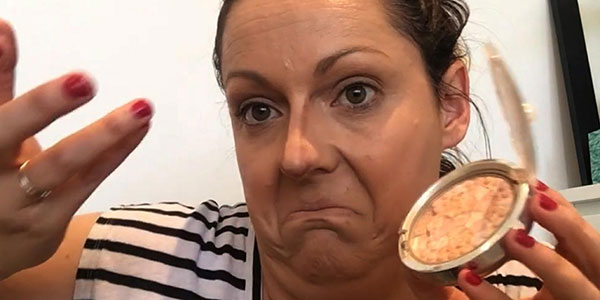
When Celeste Barber recreates images of impossibly hot models on her Instagram account, it’s funny because she simply and cleverly gets the heart of why they’re ridiculous. But in these videos for ABC Comedy, where she follows the advice of the likes of Posh Spice and Miranda Kerr, she’s nowhere near as sharp-witted. In fact, her videos are about as boring as the originals. What was needed here was some sharp gags, demonstrating why celebrity lifestyle videos are ridiculous, not just Barber saying they’re ridiculous and hoping that alone would make us laugh.
RUNNER UP
Tonightly with Tom Ballard
22.78% of the votes
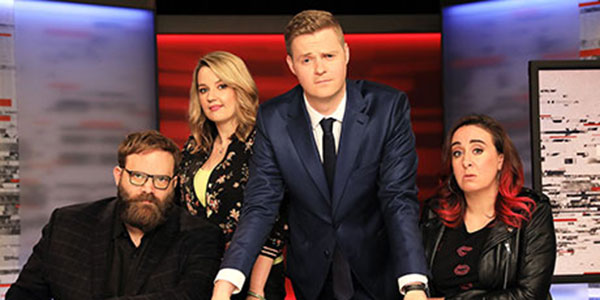
The sketches in Tonightly with Tom Ballard, so far, haven’t been great overall. The strength of this show lies in its off-Broadway feel and thoughtful stand-up and commentary, and many of the more traditional-style sketches and parodies haven’t fitted in. Having said that, the sketches in more recent episodes of the show seem to be improving, with the cast and writers trying out different styles. Kudos to them for working to improve their show – it’s starting to pay off.
WINNER
The Weekly/The Yearly with Charlie Pickering
59.49% of the votes
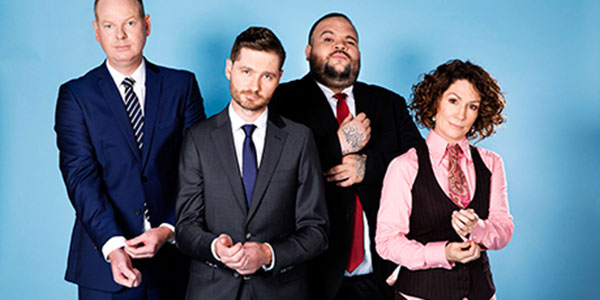
The idea of The Weekly working to improve itself is laughable. It’s been on air for, what, three years now? And it’s still this level of quality?! At what point does it qualify to be axed? Usually in TV, you can cover up mistakenly commissioning a dud by cancelling it after two series. This year, The Weekly begins its fourth series. That’s a fourth year of banal and patronising observations, woeful parodies, editions of Hard Chat and wondering if Briggs will be in the show this week or not. (Hint: he probably won’t be.)
What the voters said about The Weekly/The Yearly with Charlie Pickering…
The Weekly‘s 2017 ‘highlight’ I keep seeing referenced is Tom Gleeson’s Hard Chat with Sophie Monk, which was so ecstatically well received by the adoring masses that they revived it for The Yearly. Let’s analyze this comedy gold: Gleeson says something a bit snarky, Monk responds with something like “Yes, I suppose you’re right”. Repeat until Gleeson is out of script. Rather than reflecting well on Monk’s ability to handle awkward questions, shouldn’t the fact she brushed him off so easily reflect poorly on Gleeson’s comedy chops?
When you’re given the prime comedy slot, and the best you can manage is monologues wihtout jokes and a spinoff of The Einstein Factor….
The Weakly.
Worst Sitcom
RUNNER UP
The Other Guy
20.83% of the votes
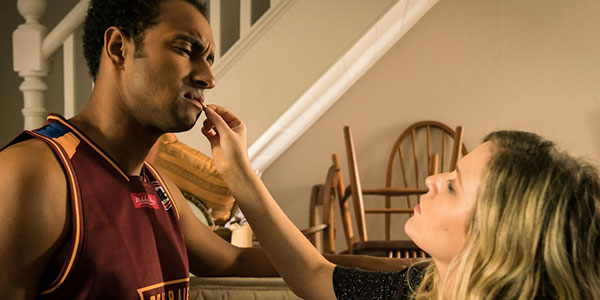
Remember how the first episode of this show revolved around a piss-stained mattress? Remember how everybody stopped watching once they realised the mattress wasn’t going to be a series regular? Sometimes we wonder where that mattress is now. It probably got a development deal with Ten. Fingers crossed it’ll be the new host of Cram!
RUNNER UP
The Letdown
29.17% of the votes
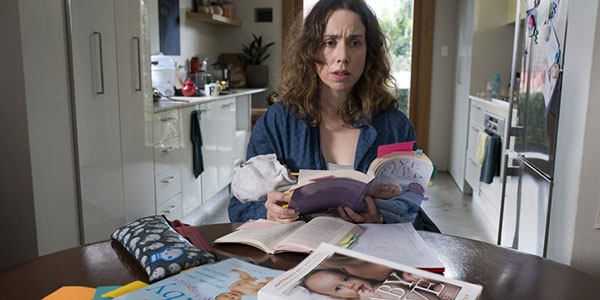
This is a bit of a tricky one, as it’s not really a bad series – it’s just not really a comedy series. The most charitable reading we can give is that they really wanted to make a light drama about a new mother’s struggles and then various industry and marketing pressures forced them to try and sell it as a comedy; the least charitable reading is that the makers figured that simply presenting a range of real-life issues around motherhood would automatically get laughs via the process of “it’s funny because it’s true”. Neither version really puts the ABC comedy department in a good light, but that’s not exactly new.
WINNER
Here Come The Habibs
54.17% of the votes
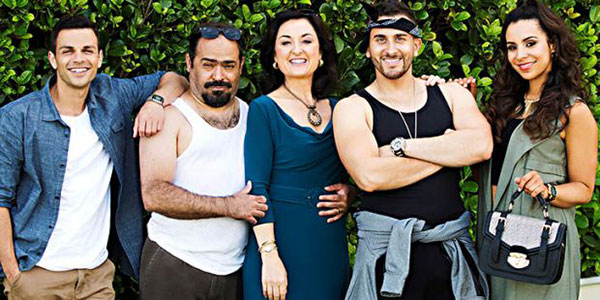
For a sitcom to have even the slightest chance of working on an Australian commercial network in 2017, it has to appeal to the widest possible audience. Forget a nuanced concept, well-rounded characters or thoughtful storylines: we’re talking about keeping everything as broad as possible. Which is fine: it’s when you do all that but don’t bother to be funny that you create Here Come the Habibs. It’s impossible to imagine anyone involved in the creation of this series finding a single element of this show funny: the fact that they seemed to think the general public would is the insulting icing on this shitty cake.
What the voters said about Here Come The Habibs…
A welcome flash of diversity, but with typical bad Channel 9 humour.
Not funny.
Really bloody silly.
Worst Topical Comedy
RUNNER UP
The Feed
20.55% of the votes
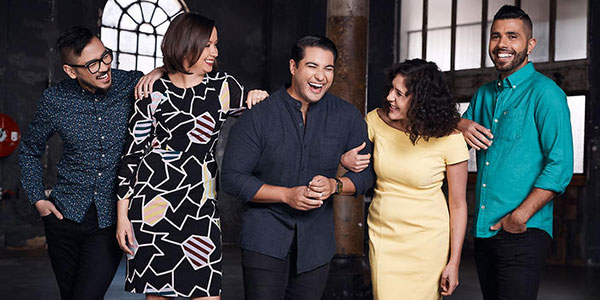
Is The Feed really a comedy? Really? Sure, they’re all laughing in that photo but whenever we tune in The Feed usually seems to be more about news delivered with the occasional moment of grim irony than anything meant to really make us smile. Maybe they’re laughing because Mark Humphries isn’t there with them.
RUNNER UP
Tonightly with Tom Ballard
23.29% of the votes

Okay, we’re going to call this result “divisive”, because while clearly a bunch of you don’t like Tonightly, it’s clearly better than The Weekly. Seriously, for a show made on the smell of an oily rag Tonightly is kicking a lot of goals each week. Yes, it’s hardly perfect and it’s still going through some growing pains but maybe we didn’t make it clear that IT’S NOT THE WEEKLY. So there.
WINNER
The Weekly/The Yearly with Charlie Pickering
76.71% of the votes

What does The Weekly want to be? Time was we’d settle for “not shit”, but even that simple goal seems beyond its grasp. It must seem like we have a bee in our stylish bonnet about this show because fuck knows we’re sick of writing about it, but come on: Mad as Hell does the news satire thing a thousand times better, Tonightly is easily a better tonight show, The Project has a lock on the “entertaining news” format and yet The Weekly keeps on coming back. If it’s just because it’s cheap, give Tonightly its slot. If it’s just because the ABC needs a showcase for a bunch of its “personalities”, get Charlie Pickering to do something – anything – else on the network because he’s wasting your money fronting this. And if it’s because someone at the ABC thinks a show that’s one third day-old social media topics, one third forgettable interviews, and one third wishing Kitty Flanagan had her own show is pulling in viewers, someone needs to point out that the era of the “nailed it!” clip going viral ended with Hilary Clinton’s Presidential campaign no matter how many times Pickering shouts about how stupid Trump is.
What the voters said about The Weekly/The Yearly with Charlie Pickering…
2017 was a gruesome dumpster fire. Trump, homophobia, terror, systemic sexual abuses, impending global catastrophe. Dire material like that usually provokes the most powerful comedians to give voice to our communal pain and despair. Charlie Pickering wore a suit and smirked through ‘jokes’ that barely met the standard of snarky facebook updates.
Too smug, too dumb. Sympathy for Kitty Flanagan who could have hosted to get around the whole ‘male in a suit comedy desk’ routine.
If The Weekly is looking for tagline pitches for its 2018, I’d like to suggest: ‘This is good enough, yeah?’
Worst Panel/Game/Interview/Light Entertainment/Stand-Up Show
RUNNER UP
Gogglebox Australia
31.58% of the votes
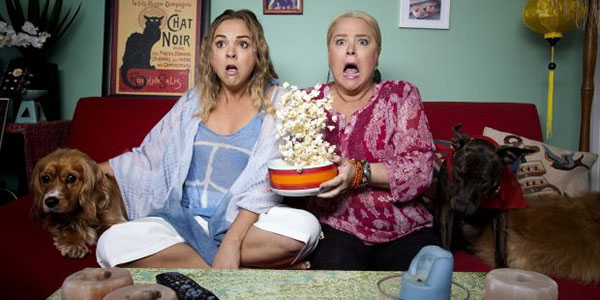
If you’re going to make a show about ordinary Australians talking over the top of TV shows, you’d better make sure you find some ordinary Australians who have something funny or interesting to say about TV shows. Because it would be awful if you didn’t and you ended up with a show where a bunch of people play up their supposed quirks for the cameras. And that was all there was to the show.
RUNNER UP
Gruen
39.47% of the votes
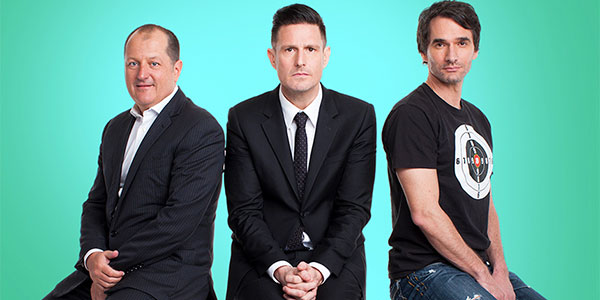
Most Australian panel shows are content to do one thing wrong: Gruen – always with an eye to providing value for money – does two. Firstly, it’s based on a truly despicable belief system that revolves around the idea that advertising is good. Secondly, it somehow manages to make advertising seem boring. Even Bewitched couldn’t manage that, and the advertising subplots there were up against actual witchcraft. Maybe they need less segments about how the solution to every single social problem is “spend more money on advertising”, and more segments on how advertising executives actually spend their obscene salaries. Because they spend them on drugs. Lots and lots of drugs.
WINNER
Cram
47.37% of the votes

It’s amazing to think that a network canny enough to give Have You Been Paying Attention? twenty thousand episodes a year thought this was something that should go to air. And hosted by Peter Helliar no less, a man who has yet to succeed at anything that doesn’t involve standing slightly behind and to the left of Rove McManus. You could draw a face on a discarded sofa cushion and it would be capable of doing Helliar’s job. You think we’re exaggerating? Remember Tuckerbag? A literal paper bag advertising a small-scale grocery chain had more charisma than Australian television stalwart Peter Helliar. And yet here we are, with Helliar making hundreds of thousands of dollars each year while Tuckerbag ended up in the bin.
What the voters said about Cram…
I actually wanted to like Cram but just doesn’t work for me.
Just crap. Too much colour and flair/ self-importance. Just put six funny people in a room and make sure the cameras are on goddammit!
Cram? More like crap.
Worst Film
RUNNER UP
Three Summers
20% of the votes
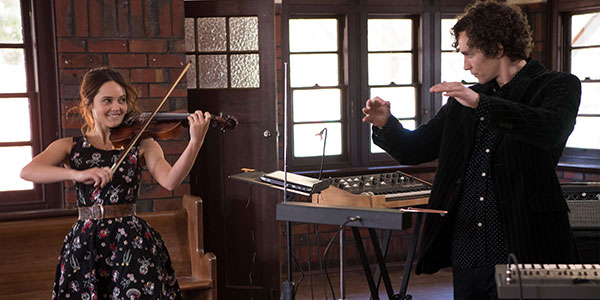
While Three Summers was miles better than the likes of That’s Not Me (the Tumbleweeds editors’ pick for Worst Film), it still suffered from the usual Aussie film comedy problems of cliched plot and characters, and lame gags. Still, it’s interesting to watch something contemporary by Ben Elton where some of the dialogue isn’t recycled from his 80s stand-up. Has even he realised it’s time he stopped doing that?
RUNNER UP
Ali’s Wedding
22.50% of the votes
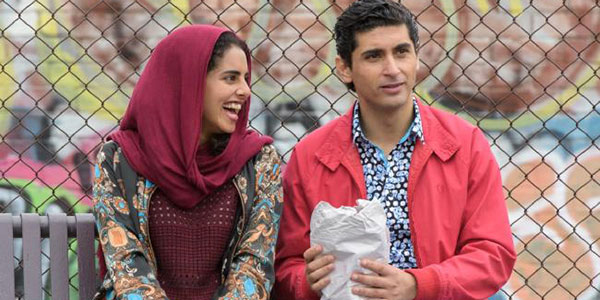
There’s no real reason why Australia can’t make romantic comedies. Oh wait, yes there is: nobody wants romantic comedies. Think back over all the movies you’ve seen advertised over the last few years. Where were the romantic comedies? News flash: there weren’t any, because that particular genre is (currently) dead. Blame Judd Apatow, blame Katherine Heigl, blame the – four? five? – movies that thought showing Rebel Wilson waking up next to some random dude after a night on the piss would be hilarious; whatever you want to blame, the fact remains that, at this point in time, mixing romance with comedy is cinematic death. Sorry guys.
WINNER
A Few Less Men
50% of the votes
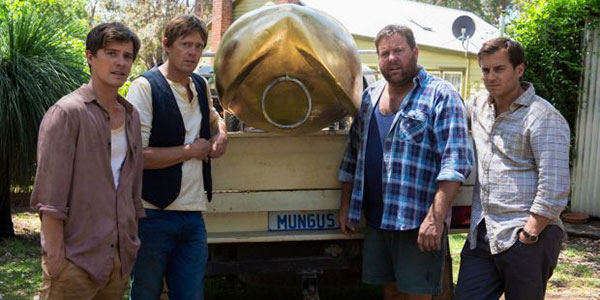
You don’t have to be a regular movie-goer to know that the big problem with Australian films usually boils down to “bad writing”. And while comedies don’t necessarily need to have good writing, it’s definitely a huge help – especially when most of our comedy talent aren’t movie-level actors and our movie-level actors aren’t great at hilarious improv (unless they are, in which case they’re Rose Byrne making real movies in Hollywood). So way more often than we should be comfortable with, we get movie “comedies” largely based around the kind of unfunny ideas you’d expect a well-heeled money man to be barking out at a production meeting. See the license plate in the still above this paragraph? “Mungus”. Oh ho ho.
What the voters said about A Few Less Men…
Well, I haven’t seen any of them, but I remember getting sick to bloody death of ads for A Few Less Men, so I’ll vote for that.
Didn’t need a sequel.
A Few Best Men was bad enough. Full of bad stereotypes.
Worst Fresh Blood Show
RUNNER UP
Headswapsies
22.22% of the votes
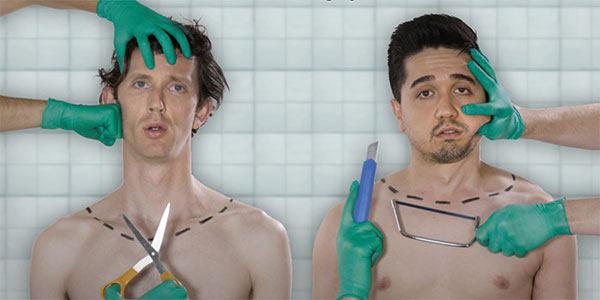
In an already bad field of shows, Headswapsies was definitely one of the worst from 2017’s Fresh Blood. If you’re going to do visual comedy, you need to do it really well, i.e. a deft performance of a clever script. This was more a clunky performance of a poor script. Don’t bother watching it.
RUNNER UP
Why Are You Like This?
22.22% of the votes
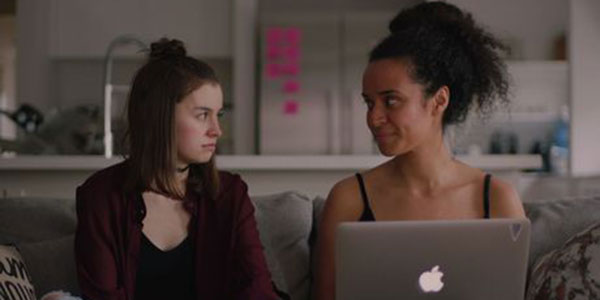
One episode of this involved the two main characters manufacturing cum from various everyday groceries. We’ve watched it multiple times and we still can’t work out why anyone involved thought this would be funny. Don’t bother watching it.
WINNER
Collective Noun: ABC Millennials
41.67% of the votes
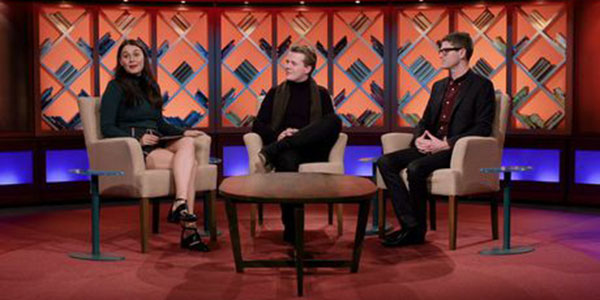
In some ways, this was way better than most of Fresh Blood – at least there was a strong central concept – problem is, it felt like something a bunch of 40-something advertising executives had written about da yoof. Hey! Millennials like social media… here’s what The Book Club would be like if it was about social media. Like we said: don’t bother watching it.
What the voters said about Collective Noun: ABC Millennials…
Theory: The ABC ranked all the entries for Fresh Blood in order, then accidentally gave the money to the worst 20 rather than the best 20. Only explanation.
Let’s face it – they all sucked.
This was so cliched I’m surprised there wasn’t an episode of this about smashed avo.
Best New Comedy
RUNNER UP
Childproof
26.87% of the votes
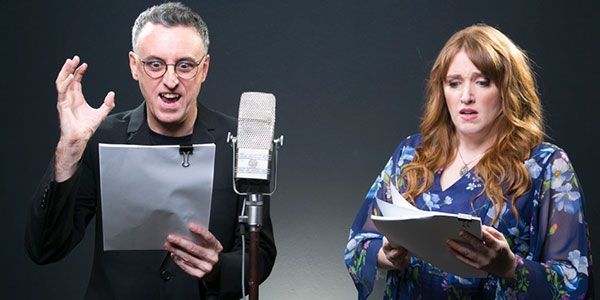
You’ve gotta love Tony Martin. Not just because he’s funny and works really hard to write scripts packed with hilarious lines, but because when some idiot executive tells him there’s no market for his sitcom, he makes it available to the audience and proves that there is. The even better news: because he’s in charge, no one can prevent him from making a second series. Fingers crossed he does.
RUNNER UP
Ronny Chieng: International Student
29.85% of the votes
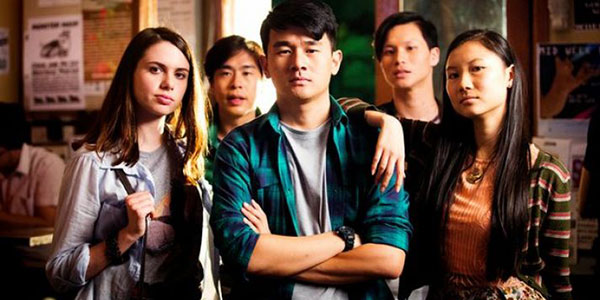
Anyone watching this year’s Fresh Blood could be forgiven for thinking that new talent initiatives are a rock solid waste of time. Ronny Chieng: International Student is proof that sometimes they can unearth something really good.
WINNER
Get Krack!n
59.70% of the votes
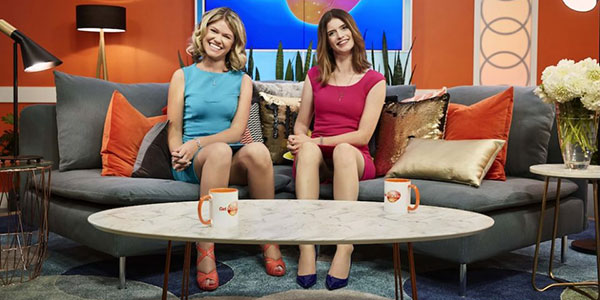
This show was great straight out of the blocks. Original, biting, silly and intelligent – Get Krack!n had something for everyone. One of the signs that you’re watching a great comedy is when that comedy’s trying to make you laugh every single way it can, and in Get Krack!n they even bothered to make their dresses funny. Bravo, Kate and Kate! Another series, please.
What the voters said about Get Krack!n…
Narrowly giving this to Get Krack!n, I’m a sucker for gags involving unseemly editing. Part of me wants to see the Kates write a show where pleasant characters have a nice time, but I eagerly look forward to whatever they do next.
Every episode of Get Krack!n was goddamned funny, and while that’s already more than enough, it was also ferociously satirical, tearing through the superficial, dead-eyed, aspirational fantasies that clog morning television. McCartney’s Sonia Kruger tirade and subsequent faux-apology, their pleading suck up to Katy Perry, the way McLennan’s endless bristling against the patronising way their guests framed them as ‘girls’, the show only appeared to be about two unhinged hosts; in reality it was the format that needed burning down.
McCartney and McLennan are the best thing Australian TV has going for it. The quality and quantity of jokes in Get Krack!n puts everyone in this country not named Shaun Micallef to shame.
Best Comedy
RUNNER UP
Get Krack!n
40.54% of the votes

Good comedy in this country is a fragile thing. Clarke & Dawe survived for decades as the equivalent of an editorial cartoon on the tail end of a flagship current affairs program; Mad as Hell vanished from our airwaves for well over a year while the ABC wondered whether they really needed two news satires now that The Weekly was so obviously going to sweep all before it. And The Katering Show, AKA the show that made Kates McLennan and McCartney famous and successful enough to give us Get Krack!n, was originally rejected by the ABC and had to become a viral YouTube hit with US interest before the national broadcaster decided to support the second series. Fun fact: season one of Get Krack!n was made in part with money from US comedy service Seeso, which is now defunct. It’d be really, really nice if someone at the ABC could confirm we’re getting a second series of Get Krack!n. Because it deserves one.
RUNNER UP
Clarke & Dawe
48.65% of the votes

For decades, the start of the end of the week was the marked by a new Clarke & Dawe sketch. Hilarious, on point – more on point than most serious political analysis – how we miss it.
WINNER
Mad As Hell
63.51% of the votes
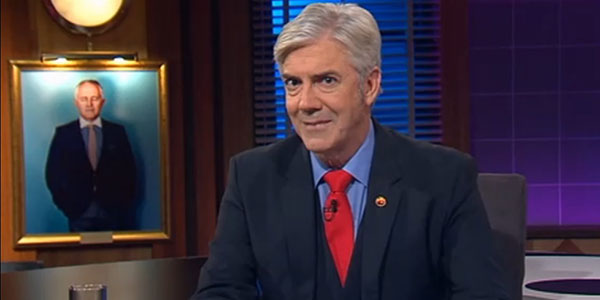
World class Australian comedies are few and far between, so how lucky we are to have Mad As Hell, a show unique to this country. Name another topical satire in the English-speaking world where the emphasis is on surreal characters and out-and-proud silly comedy. Name another topical satire that makes you laugh as much as this does. We’ll wait.
What the voters said about Mad As Hell…
Mad as Hell by far the best.
Mad as Hell always gets my number one vote. This year was the finest season yet. Multiple times I had to pause iView because I was laughing so hard I was afraid of missing jokes.
There’s not much to say about this show that hasn’t been said before. Which is the best sign that it’s maintaining its quality levels when other shows would be experiencing exhaustion.
And because John Clarke’s so greatly missed, a few thoughts from the voters on Clarke & Dawe…
I swear to god, if Clarke & Dawe don’t win this, the esteemed curators of the Australian Tumbleweeds should declare the vote null and void, and give John and Bryan their rightful accolades. RIP John Clarke.
The winner has to be Clarke & Dawe. For sadly obvious reasons. There will literally never be another chance to celebrate the most insightful, wry, playful, generous genius of Australasia’s greatest comedic talent, John Clarke. That he was lost to us all this year was a tragedy, but a sharp reminder of how blessed we all were to have him for so many years.
John Clarke was possibly the sharpest comic mind we produced/stole from New Zealand. Losing him made the shitpile that was 2017 all that much worse.
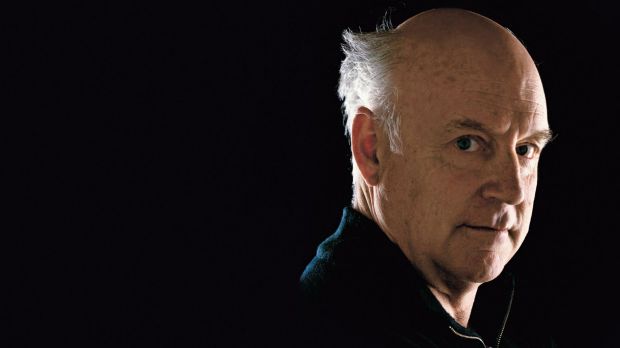
What the voters thought about Australian Comedy in 2017…
Mostly terrible with a couple of gems, so even better than usual.
Showing the first promising signs of a generational shift.
Pretty good.
Another lurch into the nadir. Yet more dramedy with shallow characters, bad dialogue and nothing remotely innovative or funny.
A big problem this year, as usual, was the lack of promotion and visibility for a lot of content. With a handful of shows promoted endlessly on television and online, while there were others I hadn’t heard of before filling in this questionnaire. The odds are unfairly stacked against new talent, although even getting a chance is a fete in its own right. Happy to see the Kates doing well, disappointed to see so many resources pooled behind Tom Ballard. At least the boys from Dum Dum appear to have cemented themselves, so well done to them. Thanks to the team at Tumbleweeds for their service, which I find neither unfair nor unbalanced. Happy new year.
Meh. Was alright.
‘My idols are dead and my enemies are in power.’
Getting better.
An interesting year.
We don’t get golden years in Aussie comedy, but with The Kates, Ronny Chieng and Celia Pacqola sharing the small screen with like of Micallef, 2017 is a very solid silver.
Not as wretched as some years.
Dismal.
Meh.
It was great! For a while there Wed and Thur nights on the ABC were overflowing with good Australian comedy. Channel 9 and Ten have done well with True Stories and Have You Been Paying Attention, but the commercial stations should look to the ABC and SBS for what a laugh-out-loud creative comedy looks like.
There seemed to be more of it, which is a good thing. The more we make, the more chance we have of finding the gems. It was sad to see the old ABC studios shut down. Hopefully, the trend of studio comedy shows shooting in Sydney doesn’t continue. Melbourne is waaay more of a comedy hub than Sydney.
Some really good new stuff like Get Krack!n, Edge of the Bush, International Student and I’m enjoying Tonightly as well. Mad as Hell, HYBPA know what the fuck they are doing and continue to do it. Mostly everything else is mediocre to bad. I think there should be more investment in proven talent and an actual support network for up and comers to be partnered with more experienced people.
It was better than previous years in terms of the quantity being produced, but what’s the point of all that product when hardly any of it is actually funny? Fresh Blood was especially disappointing. Is that really the best new talent that’s out there? It just reinforces the belief by TV networks that they are right to ignore comedy. Just make a crappy soap opera instead – at least it will hold onto viewers.
How is this rubbish blog still running?
Vote now in the Tumblies 2017!
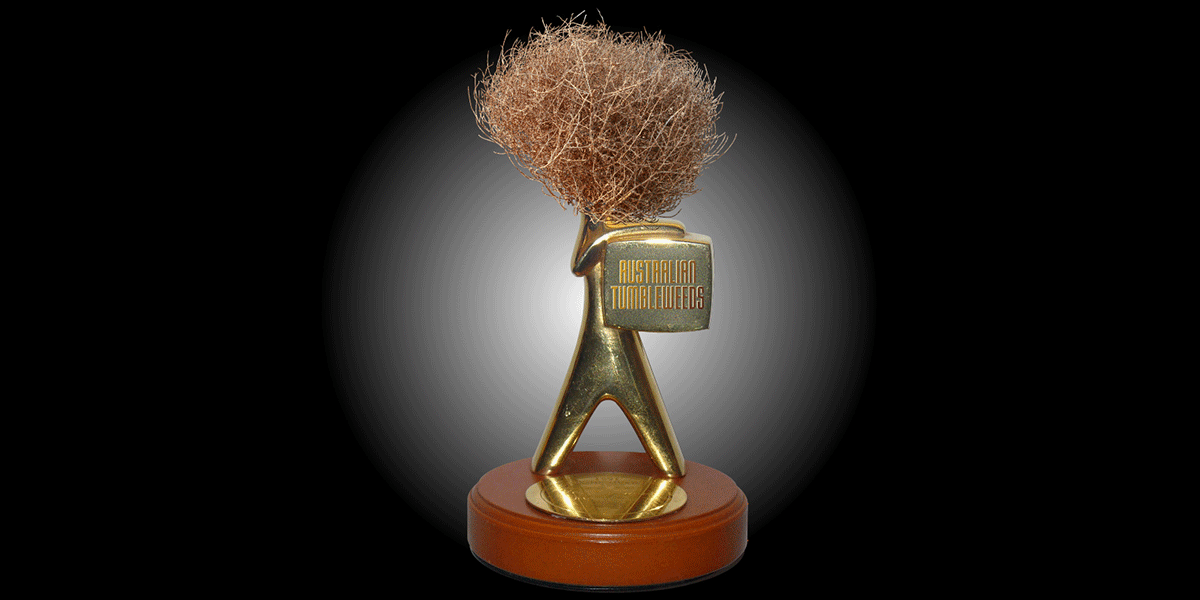 Voting is now open in the Australian Tumbleweeds Awards 2017! Now in its 12th “amazing” year, the Australian Tumbleweeds hails the failures (and occasional successes) of this nation’s comic talent.
Voting is now open in the Australian Tumbleweeds Awards 2017! Now in its 12th “amazing” year, the Australian Tumbleweeds hails the failures (and occasional successes) of this nation’s comic talent.
This year, we’ve decided to keep things interesting by adding a new category and removing an old one.
Your online voting form can be found here: https://www.surveymonkey.com/r/tumblies-2017
You have until midnight at the end of Friday 12th January 2018 to vote. Please only vote once. Full rules and instructions can be found with the voting form – please read the rules carefully!
The winners will be announced on or about Australia Day 2018.
As always, the official hashtag is #tumblies.
Today Tonightly
We’ve waited a while before passing judgement on Tonightly, ABC Comedy’s new tonight show, because unlike pretty much every Australian comedy of the last decade or so its a show that’s able to do its growing up in public. A four-episodes-a-week talk show doesn’t have to be perfect fresh out of the gate – which is good, because the first episode was a bit of a mess – so why not give it a week or two to iron out the kinks? We’ve seen plenty of comedies that have been fully committed to being shithouse from day one; there’s no harm in seeing if for once we might get a show that develops in the right way.
So the good news: Tonightly is pretty good for what it is. And what it is, is Tom Ballard doing around 20 minutes of topical stand-up / monologue each night, broken up by the occasional (middling) sketch or (tolerable) interview. It’s about as bare bones as a tonight show can get: no band, no string of guests promoting something, and an audience that sounds like a handful of mildly interested cleaning staff. Considering the vast number of recent tonight-ish shows that have gone in the other direction – the parody of Aaron Chen Tonight, the earnest lecturing of The Weekly – it’s surprising someone didn’t try the low-fi version earlier. Especially as it’s both cheaper and a lot more likely not to suck.
As the host Ballard is good, not great, but he’s lucked out with a (cheap, bare bones, but efficient) format that – in a startling rarity for Australian comedy – lets the host just be funny. Australia is full of radio jocks whose only skills are likability and being able to deliver a joke; you could give just about any regular from Have You Been Paying Attention? this job and they wouldn’t stuff it up. But Ballard is the one in the hot seat and while he’s not exactly breaking new ground here with his “genial host” act, he’s mostly coming across as both likable and funny without skidding into “arrogant prat”.
(his on-camera support crew are largely forgettable, which is actually a step up considering how annoying we’ve found some of them to be previously. Which we’re going to say means they’re hitting the sweet spot where the jokes and not “hey look at me I’m hilarious!” comes first)
Likewise, the jokes are aren’t classics – there’s plenty of shouting “what the fuck?” over clips of politicians doing or saying bad things – but it usually feels like they’re trying to be funny first, delivering a right-on lecture second, and these days that goes a long way in political comedy. Even when its political comedy that occasionally feels like it’s being broadcast live from the set of one of those Up Late Game Shows from 2006. Plus, it doesn’t hurt that when they do the self-deprecating “hey, the real joke was that we did a joke that bad” thing it usually feels like they mean it. Take note, The Weekly.
Come to think of it, this whole show must be a serious concern for The Weekly, considering it’s doing roughly the same thing only four times as often and a whole lot better. It’s safe to say that Charlie “not really all that good at seeming likable” Pickering’s setting himself up for disappointment when he’s saying things like this:
He agrees Australia could do with a permanent tonight show format, and sees an “older version” of himself in such a role.
Because if Tonightly is any guide, that role’s already been filled.
Fresh Blood from a stone
Let us tell you, watching this year’s new batch of Fresh Blood has been a real slog. And it seems you agree.
One of several private messages we received about our Fresh Blood blogs came from someone who was actually in a Fresh Blood show. Here’s what they had to say:
I’m on [REDACTED] and fuck is it another rough year for Fresh Blood…
There’s only like 5 of them that are actually good. Look forward to reading your review.
There are 4 that are literally “Broad City but with none of the wit, fun or charm” and 2 that are based on sketches SNL did in the 80s that wasn’t funny there, nor are they funny now.
Hard to disagree with that.
Anyway, for one last time, here’s what we think about Fresh Blood 2017.
True Murder
This authentic-looking parody of a Making A Murderer-style true crime show is a bit of a slow burn. The problem is that most of the comedy comes from running gags, and it takes most of episode 1 for those to be set up. But stick with it, and it’s a pretty funny show. Also, look out for cameos from Adam Richard and Anne Edmonds.
The Angus Project
This isn’t bad either. Angus, a disabled university student who likes to party, convinces friend Erika to be his new carer. Erika’s an unlikely support worker, but she’s right for Angus. Together, they drink, smoke bongs, party, cheat on essays and mess around. It’s kind of a more wild version of Emma and Daniel in Rosehaven – and a similar sense of humour. This is one of four Fresh Blood projects to be awarded $75,000 to make a 30-minute pilot. It could work.
Unsynced
The plot of Unsynced is a little bit Chris Lilley, in that it’s highly unlikely: a champion ladies synchronised swimming duo turns out to be a man and woman who are husband and wife. When they’re uncovered, he has a total breakdown and she has to try and make it better. In case you’re wondering, this is about as funny as a Chris Lilley show. Here, for new readers, is what we think of him.
Woes
Two guys in their early 20 years pissfarting around is a well-established concept on which to hang some comedy, except protagonists, Rolly and Kai are so utterly unlikable that only someone who’s forcing themselves to watch this (hi!) is going to finish it. We hated this as much as Why Are You Like This, but at least it didn’t get $75,000 to make a pilot.
The Lost Tapes
Fake old footage from different eras can often be funny. Not here, though. While The Lost Tapes looks quite realistic, it often becomes so ridiculous that it stops being realistic…which means it stops being funny. We’re pretty sure, for example, that any real instructional video about microwaves from the 80s wouldn’t include footage of the presenter becoming ill from using the product.
Too Pretty To Be Witty
This consists of three woke sketches about women and their place in the world. The sketches are good and the group who made them shows some promise, which is presumably why they didn’t get $75,000 to make a pilot.
Leftovers Presents Sloppy Seconds
See our comments about Woes, except this is a show featuring two women.
Koala Man
If you set a Batman film in the Australian suburbs, with a local hero solving local problems, you’d have Koala Man. Can’t plug your Bluray into your TV? Koala Man to the rescue! It’s easy to see this working as a 30-minute sitcom, so we’re okay with it getting $75,000 to make one.
Ibis Queen
The Ibis Queen is a glamorous ship sailing the high seas and keeping its passengers entertained with a poolside floorshow featuring dolphins. Except the dolphins are kept in cruel conditions and some greenies have infiltrated the ship to save them. As plots go, there’s a fair bit going on here, and this might work better if the episodes were longer.
Bin Chickens
Some ibis’ hang out at Darling Harbour, fishing stuff out of bins and talking rubbish. Again, this might work better if the episodes were longer. Then again, it might not.
Collective Noun ABC Millenials
A group of millennials re-make some popular ABC shows – Australian Story, The Book Club and Media Watch – to appeal to a young audience. So, Australian Story tells the harrowing tale of a uni student who has to get up early and go to lectures, while on The Facebook Club the panel review the latest memes, and on Social Media Watch the host shows us what really goes into making an Instagram post. Cuh! Those millennials, they’re just so self-indulgent and focused on social media… Based on this, they also don’t know how to be funny.
Please never make us watch most of these shows again!
Vale Rosehaven series 2
Rosehaven‘s an unusual one in today’s TV landscape. If you imagine a scale with drama at one end, comedy at the other, and dramedy in the middle, Rosehaven‘s somewhere between dramedy and comedy; never quite funny enough to satisfy the likes of us, but not quite mirthless enough to be the sort of thing that people who don’t like comedy might enjoy.
In fact, the bits which are funny in Rosehaven are the sort of humour that people who find comedy annoying, hate about comedy. Stuff like when Emma and Daniel have childish arguments, or engage in tit-for-tat, or dare each other to do stupid things. A lot of this stuff is really funny – and Celia Pacquola and Luke McGregor play it perfectly. But it’s too much like comedy for a dramedy fan.
Except, then there’s a scene where Daniel’s mum says something dry which doesn’t quite work because Kris McQuade plays it too scary, or a scene involving a local eccentric and the actor doesn’t quite time the line right – or their lines aren’t that good in the first place – and that’s where Rosehaven falls into a bit of slump.
What we’re saying here is: if this were The Emma and Daniel (or Celia and Luke) Show it’d probably be a lot funnier. It might be incredibly exhausting too, but we’d be laughing more.
But what do we know? The New York Times liked it. It described it as…
Affable and human
…which it definitely is. Rosehaven the affable: the kind of show you’d be happy to have in your home again because it’s a bit funny, but not so funny that you’d ruin the couch laughing.

